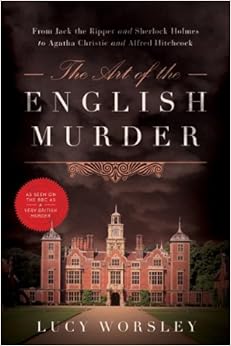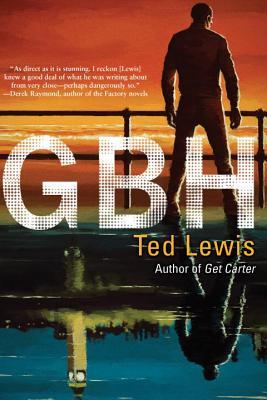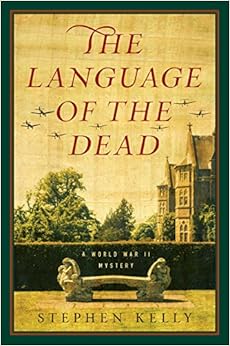
Veronica Mars, my favorite young detective, has been around a lot in 2014, first in a movie and then in
The Thousand Dollar Tan Line novel. (I wrote about the movie and the book
here.) She'll be back soon, in Rob Thomas's second Veronica Mars novel,
Mr. Kiss and Tell (Vintage, October 28).

Those of us who watched the
Veronica Mars series know the Neptune Grand hotel very well. For the fanciest spot in town, it's sure been the scene of plenty of low-down deeds, and now we have another. A woman comes forward, claiming that months earlier she had been assaulted in one of the Neptune Grand's rooms and left for dead. Management asks Veronica to investigate, before a full-blown scandal can harm the hotel's business.
Veronica's client is a headache, refusing to turn over its reservations list, and the accuser is no better, with her refusal to say who she was meeting that night and her inability to identify her attacker. The hotel's security system turns out to be no help, either, all of which leaves Veronica with a real investigative challenge on her hands.
Of course, the book is on my to-read list. In the meantime, I'll be looking forward to the September 15 debut of the web series
Play It Again, Dick, a very metafictional and crazy-sounding story, in which Ryan Hansen, who played the inimitable Dick Casablancas on
Veronica Mars, tries to cash in on the
Veronica Mars movie buzz by getting the other cast members to make a spinoff with him.
Jonathan Kellerman and his son, Jesse, are collaborating on a new series featuring LAPD detective Jacob Lev. In
The Golem of Hollywood (Putnam, September 16), Jacob had been working out of Hollywood Division, Robbery-Homicide. Jacob had a good record, until he didn't. He seems to be suffering from depression, though Captain Mendoza, who really doesn't like him, calls it a lot of other names and wants to get rid of him.
Now Jacob is on some "Special Projects" squad he never heard of, assigned to investigate a bizarre murder. Up in the Hollywood Hills, a murder victim is found––only it's not the entire victim, just a head. And the Hebrew word for "justice" is burned into the kitchen counter.
Jacob is in for a long, strange trip with this investigation, from Los Angeles, around the country and even overseas, to London and Prague, the home of the original Golem of Prague. You can read the first three chapters of the book at Jonathan Kellerman's website
here.

Last summer, I stayed up until 3:00am reading Charlie Lovett's
The Bookman's Tale––and trust me, unlike Georgette, I'm no night owl! Naturally, I pricked up my ears when I heard he has a new book coming out:
First Impressions: A Novel of Old Books, Unexpected Love, and Jane Austen (Viking, October 20). Lovett continues his propensity to meld an old-book treasure hunt with a contemporary personal story.
Sophie Collingwood is the bibliomaniac this time around. She inherited her passion from her Uncle Bertram, and is crushed when, at his death, his books have to be sold to pay his outstanding debts. Sophie takes a job selling old books herself, and ends up on the trail of a book by clergyman Richard Mansfield, which may have been the inspiration for
Pride and Prejudice, written by Mansfield's friend, Jane Austen.
Sophie's quest to determine whether Austen copied from Mansfield expands to include her efforts to satisfy her suspicions about her uncle's death. She also has to deal with two men competing for her affections; an American scholar and an English publisher.
Kirkus Reviews says this new book isn't nearly as fresh as
The Bookman's Tale, and that Sophie's story "verg[es] on chick lit," while the Austen portions "test the patience of non-Austenophiles." This doesn't entirely put me off; it just makes me think this one might not keep me up reading past my bedtime.
Did you ever see that terrific 1971 Michael Caine flick,
Get Carter? I did, and loved it. I didn't realize that the story came from Ted Lewis's 1970 book,
Jack's Return Home. Soho Syndicate is republishing Lewis's book, under the title
Get Carter on September 9, and I want to remedy my sin of reading omission.
Yorkshireman Jack Carter left the north of England and moved to London, where he became a mob enforcer. Eight years later, Jack's brother, Frank, is killed in a supposed car accident. Even though Jack hadn't spoken to Frank in years, he returns home and investigates to discover the truth about Frank's death, despite increasingly more pointed and then violent urgings that he stay out of the business of the local villains and return to the south.
Publishers Weekly raves about the book's "evocative prose" and Lewis's talent at "inject[ing] humor into the mostly gritty proceedings."
PW also says that Ian Rankin fans who don't know Ted Lewis will be pleased with the story. If you enjoy the book, you should also try to find the two Jack Carter prequels Ted Lewis wrote,
Jack Carter's Law and
Jack Carter and the Mafia Pigeon.

Helen Giltrow's debut novel,
The Distance (Doubleday, September 9) promises a modern, hard-edged thriller begging to be turned into an action-packed film. On the surface, Charlotte Alton is a cool, smooth, sophisticated young Londoner. But she has another identity, Karla, an expert in making information vanish.
One of the criminals whom Karla has helped disappear is Simon Johanssen, a military sniper who parlayed his skills into a second career as a hit man, and who needed a complete identity alteration when a mob hit he'd been hired to do went wrong. Simon comes to Karla to ask her to team up with him on a new job he has, to take out a prisoner in "The Program," an ultra-high-security prison in London that is an operational experiment, in that the prisoners essentially run their own community.
Karla's job is to set up an identity that will get Simon inside The Program and get him out when the job is done. But when she finds that his target doesn't seem to have any paper-trail existence, she becomes suspicious and feels compelled to find out who the target is and the reasons behind Simon's hire. To add extra tension to the plot, the mobster who has it in for Simon because of the botched hit just happens to be a current resident of The Program. Word is that this is an intense, dark, plot-driven thriller that will keep your mind racing trying to figure out what will happen next.
Another London-based page-turner coming out the same day as
The Distance is Oliver Harris's
Deep Shelter (Harper/Bourbon Street, September 9). This is the second entry in the DC Nick Belsey series, that began with
The Hollow Man. Belsey is one of those cops who finds ethics a luxury beyond his budget, working in a city full of every temptation and every kind of corruption.
Bad-boy Belsey decides to impress his date, Jemma, by taking her to an abandoned World War II bomb shelter where he'd earlier found a store of drink and drugs. When she seemingly disappears into thin air, Belsey knows he must find her himself, and pronto, since otherwise he'll be the prime suspect in her missing-person case, or whatever worse kind of case it might turn into.
Belsey is convinced that the secret to Jemma's disappearance lies in the network of underground tunnels that hold secrets from decades past. As he searches, he begins to receive messages from Jemma's kidnapper, who is using the name Ferryman, which was the moniker of a famous spy during the Cold War. Time is running out as Belsey tries to figure out who Ferryman really is, rescue Jemma and avoid getting caught by his own police force. I need to get a copy of
The Hollow Man read ASAP so that I'll be ready for
Deep Shelter.

I can't exactly say I'm looking forward to Robert Baer's
The Perfect Kill: 21 Laws for Assassins (Penguin/Blue Rider, October 28); that seems wrong, given the subject, but I'm intrigued. Baer spent 25 years as a CIA operative and assassin (though he claims he never succeeded in taking out a target).
In this wry, hard-eyed guide (hmm, do I really want to call something on this subject a guide?), Baer examines the history of political assassination, making the point that this tactic works better in combating evil than, say, drone strikes. Baer is the author of the best seller,
See No Evil, which was adapted for the film
Syriana, where his character was played by George Clooney. (Now there's an item for any man's bucket list!) Earlier this summer, it was announced that
The Perfect Kill has already been optioned for a cable TV series.
I was lucky enough to receive an advance reviewing copy of
Broadchurch (Minotaur, September 2), by Erin Kelly, from Chris Chibnall's screenplay for the popular television miniseries. I'll be writing about the book at length next week, but for now I want to let you know that this was a gripping novel that can stand on its own or be enjoyed even if you already watched the miniseries.
Broadchurch is a small beach town on the Dorset coast, where everybody knows everybody else. When 11-year-old Danny Latimer is found murdered on the beachfront, it turns everyone's lives upside down. Ellie Miller's family is close to the Latimers, but Ellie is a cop and she is constantly reminded by her acerbic new boss, DI Alec Hardy, that she must stay in that role and remember that nobody can be trusted.
Mark Latimer, Danny's father, has a secret that he refuses to tell, and soon even his wife, Beth, begins to suspect that he has a role in Danny's death. Neighbors begin to suspect each other, and secrets are brought to light that may ruin lives. A fascinating whodunnit,
Broadchurch is also a thoughtful study of how murder affects a community.
Lucy Worsley is a new name to me, but she's a well-known historian in England, where history is all-important. At only 40 years old, Worsley is chief curator of the Historic Royal Palaces organization, and she regularly hosts history-related television series.

One of Worsley's interests is social history, and it looks like anything goes with her. Later this year, she's pairing up with Len Goodman, of
Dancing With the Stars in the US and
Strictly Come Dancing in the UK, to present a new BBC4 series called
Dancing Cheek to Cheek: An Intimate History of Dance. The series studies the social history of popular dances, and at the end of each episode, Goodman and Worsley suit up in period costume and demonstrate a dance.
Worsley has also turned her attention to England's longtime fascination with murder, from Jack the Ripper to the Ratcliff Highway Murders to Dr. Crippen and, in fiction, from Sherlock Holmes, through the Golden Age to today. In
The Art of English Murder (Pegasus Crime, October 8), Worsley examines just what it is that makes murder a near-obsession and an entertainment in England.
Publishers Weekly gives the book a starred review and says: "Worsley's vivid account excites as much as its sensational subject matter, and edifies too, thanks to her learned explications."
We'll be back next week with even more previews of coming attractions.





















